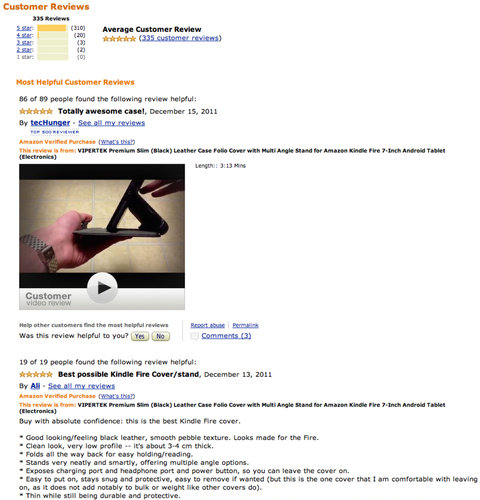Providing Incentive Prizes for Positive Online Reviews: Resourceful or Cheating?
Internet marketing is seeing nothing but growth. But in the past year, we’ve seen specifically a greater influence placed on customer reviews through review sites such as Yelp, forum sites like Quora, and social media reviews and recommendations.
In fact, HubSpot recently published information showing that people trust online recommendations more than they do traditional advertising:
-
71% of people are more likely to purchase based on social media referrals
-
Products that have received 50+ reviews create greater returns
-
61% of consumers use search engines to read about products before a purchase
So it was only a matter of time before retailers realized they could take advantage of this boom by offering prize incentives with a push to give the product a positive online review.
In an article published yesterday, The New York Times examined a deal in which VIP Deals boosted the star rating of an Amazon Kindle Fire leather case by “offering a refund to customers in exchange for a write-up.” Customers were offered the case for $10 plus shipping and handling, instead of the $59.99 list price, and had the option of a full refund in exchange for writing a review.
Currently, the case has 310 five star ratings out of 335 reviews, and many of the rest are four stars.

Image courtesy of The New York Times
While this may seem like a blatant scam, customers who participated in the deal and who were subsequently contacted for the article saw no harm in it.
This kind of incentive is the next step on a road leading to black hat SEO. Providing refund incentives for a positive review is, at its core, cheating. It is bribing customers into providing reviews that may not be true and it is a marketing scam. Historically, trying to cheat the online system may work in the short-run, but subjects you to a long-term negative brand reputation once these tactics come to the surface. Just as Google has re-worked its algorithm to detect scam sites, researchers are now working on models that will help in detecting bogus reviews.
Creating marketing messaging campaigns centered on gaining positive reviews is one thing, but prompting positive reviews through blatant unethical means will never serve you or others well.
What’s your opinion? Has your company come across any issues with online customer reviews?
